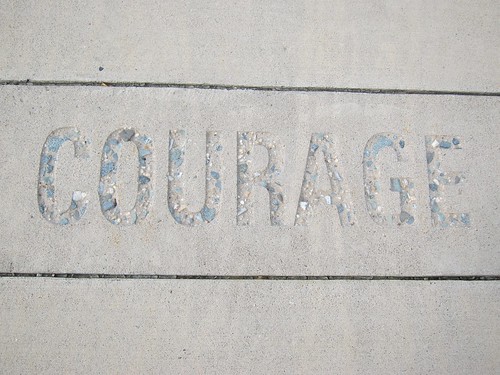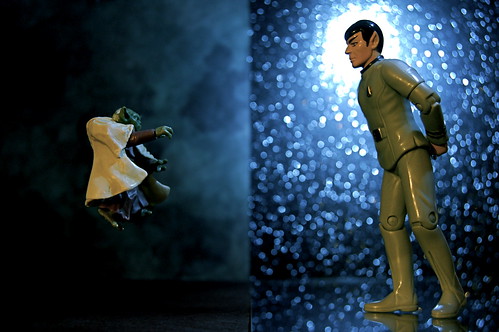 Mal-alignment: the scourge of modern day health care practitioners. According to many, it is the root of all clinical evil in the orthopedic world. It has been used to rationalize countless clinical scenarios and treatment interventions.
Mal-alignment: the scourge of modern day health care practitioners. According to many, it is the root of all clinical evil in the orthopedic world. It has been used to rationalize countless clinical scenarios and treatment interventions.
Rumor has it that resolution of this malady is also the solution to world hunger and peace in the Middle East. But I digress.
Oh, mal-alignment. How you tantalize us with the hypothetical world in which you contribute so much to so many. But understanding you would require a deeper understanding of "normal" first, now wouldn't it?
Which brings us to - the inconvenient truth about normal.
 On Tuesday, April 30, the House Public Health Committee finally voted on HB 1039, a bill that would improve patient access to physical therapy in the state of Texas. The committee voted 6 - 3 to pass the bill favorably out of committee.
On Tuesday, April 30, the House Public Health Committee finally voted on HB 1039, a bill that would improve patient access to physical therapy in the state of Texas. The committee voted 6 - 3 to pass the bill favorably out of committee.
Now it is on its way to the Calendars Committee who are responsible for putting it on the House calendar for second and third reading. This must occur before it gets a vote on the House floor.
As exciting as this sounds - and it is - time is running out. This is where you, the consumer, can help decide the future of health care in the state of Texas.
 Last month was a tough month. The events of Boston, Massachusetts and West, Texas brought tragedy front and center in our world once again.
Last month was a tough month. The events of Boston, Massachusetts and West, Texas brought tragedy front and center in our world once again.
The news of the Boston bombings was everywhere you looked. Many were exposed to the devastation that struck the community of West. We are in a world these days in which the more sensational or shocking the news is, the more tragic the event is perceived. It could be Boston or West or Newtown or Columbine or Oklahoma City. You don't have to go overseas to find examples. Just look in our own backyard.
Throughout that fateful week, the overwhelming thought wasn't one of making sense of the evil, the pain, or the suffering. My mind kept coming back to our responses to the tragedies among us.
 Pick up any book on training for virtually any sport. Crack it open and review the contents. I have no doubt that you will find it filled with copious content on the physical elements of training. Everyone likes to discuss how to build the physical capacity of sport performance. Workouts are king.
Pick up any book on training for virtually any sport. Crack it open and review the contents. I have no doubt that you will find it filled with copious content on the physical elements of training. Everyone likes to discuss how to build the physical capacity of sport performance. Workouts are king.
What we need to remember, however, is that the brain and central nervous system control everything. The brain can be trained - just like the rest of the body. Cognitive strategies will have an impact not only on the central nervous system, but the endocrine and immune systems as well.
So without any further adieu, here are five mental strategies that can help optimize your training, improve your racing, and yes, change your life.
 Rush arrived at the Frank Erwin Center on Tuesday night for the start of their latest tour, just 5 days after being inducted into the Rock and Roll Hall of Fame. What ended up as a phenomenal 2.5 hour performance started with a song from 1982 called "Subdivisions". It immediately took me back to a place many years ago: January, 1984.
Rush arrived at the Frank Erwin Center on Tuesday night for the start of their latest tour, just 5 days after being inducted into the Rock and Roll Hall of Fame. What ended up as a phenomenal 2.5 hour performance started with a song from 1982 called "Subdivisions". It immediately took me back to a place many years ago: January, 1984.
I will admit, those were difficult times, struggling as many do with trying to find your place in the world. While my friends gravitated towards the hollow mind candy of Top 40 hits, I found myself immersed in musicians like Jimi Hendrix and, yes, Rush. I saw the world a little differently than most of my friends, and it certainly wasn't without it's share of friction.
Meanwhile, there was this class called "Canadian literature" that I had to survive. Little did I know that it would change my world and forever alter the course of my life.
 The last few days have had me in a reflective mindset. I think it relates to spending more time out walking and hiking at a local park. It is a time to breath, to get away from the demands of the world - just me and my thoughts, nothing more, nothing less.
The last few days have had me in a reflective mindset. I think it relates to spending more time out walking and hiking at a local park. It is a time to breath, to get away from the demands of the world - just me and my thoughts, nothing more, nothing less.
Of course, the clarity gained while wandering the trails leads to a natural flow of thoughts and plenty of ideas for writing. It is amazing how much good rhubarb can be found out on the trail.
Episode 65 of the Rhubarb Report dives into running, responses to recent national tragedies, and, who else, Rush - and not the Limbaugh variety either.
 Imagine, if you will, a world in which arbitrary rules are placed on which cars you can purchase or what milk you can drink. Imagine that same world limiting your access to the Internet for certain purposes like, say, reading Consumer Reports. Imagine having regulations placed on the neighborhoods in which you can purchase a house, regardless of how much money you are ready to spend.
Imagine, if you will, a world in which arbitrary rules are placed on which cars you can purchase or what milk you can drink. Imagine that same world limiting your access to the Internet for certain purposes like, say, reading Consumer Reports. Imagine having regulations placed on the neighborhoods in which you can purchase a house, regardless of how much money you are ready to spend.
The inevitable question is "why the limits"? And the response is, well, "just because".
I have no doubt you would be outraged. You would immediately think that your freedoms and liberties were being trampled upon, and you wouldn't consider that acceptable at all.
But what happens when it comes to your health and health care?
 "Running Injuries: Etiology And Recovery- Based Treatment" (co-author Bridget Clark, PT) appears in the third edition and fourth editions of "Clinical Orthopaedic Rehabilitation: A Team Approach" by Charles Giangarra, MD and Robert C. Manske, PT.
"Running Injuries: Etiology And Recovery- Based Treatment" (co-author Bridget Clark, PT) appears in the third edition and fourth editions of "Clinical Orthopaedic Rehabilitation: A Team Approach" by Charles Giangarra, MD and Robert C. Manske, PT.
 Allan Besselink, PT, DPT, Ph.D., Dip.MDT has a unique voice in the world of sports, education, and health care. Read more about Allan here.
Allan Besselink, PT, DPT, Ph.D., Dip.MDT has a unique voice in the world of sports, education, and health care. Read more about Allan here.
 Top 5 finalist in three categories: "Best Overall Blog", "Best PT Blog" and "Best Advocacy Blog".
Top 5 finalist in three categories: "Best Overall Blog", "Best PT Blog" and "Best Advocacy Blog".